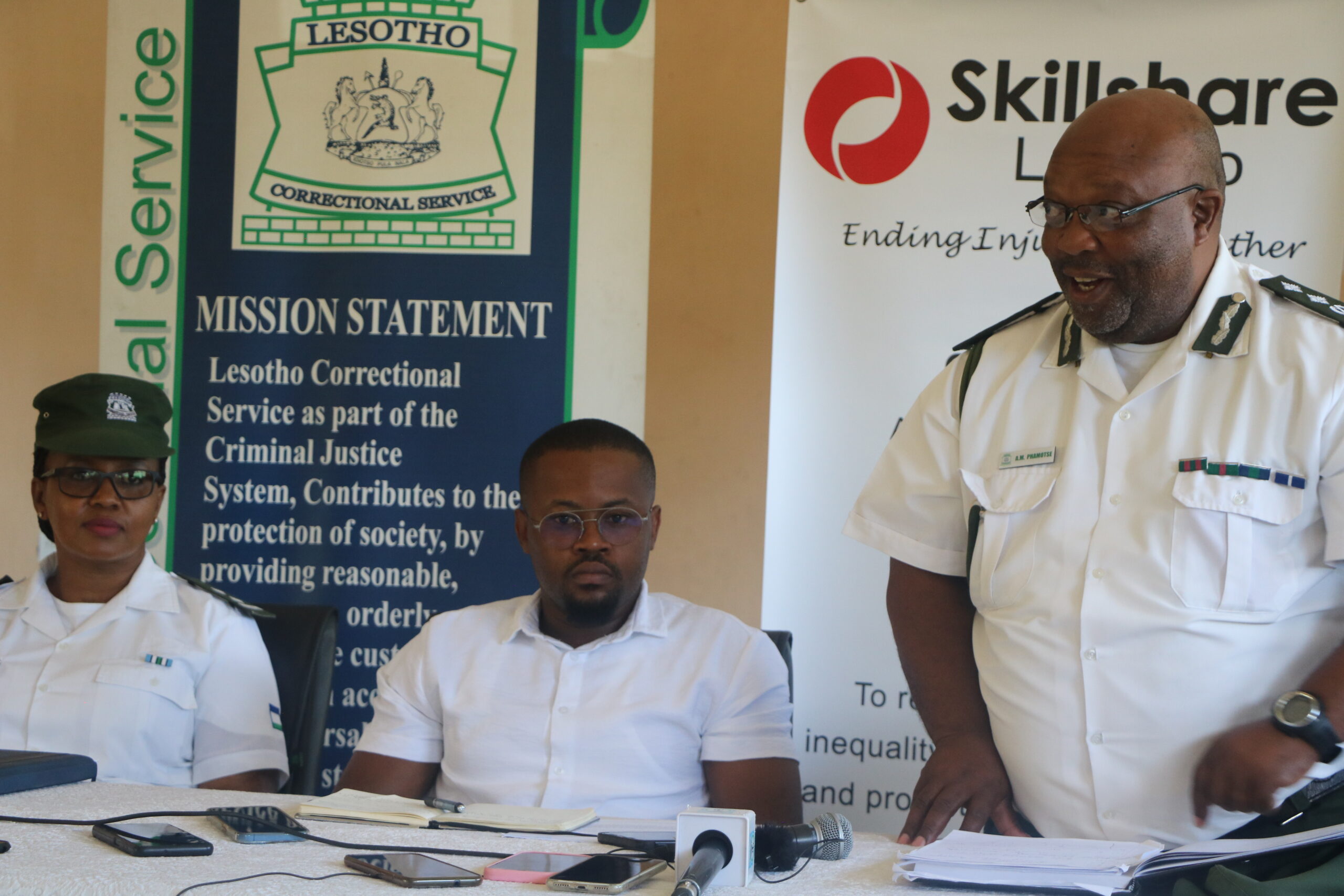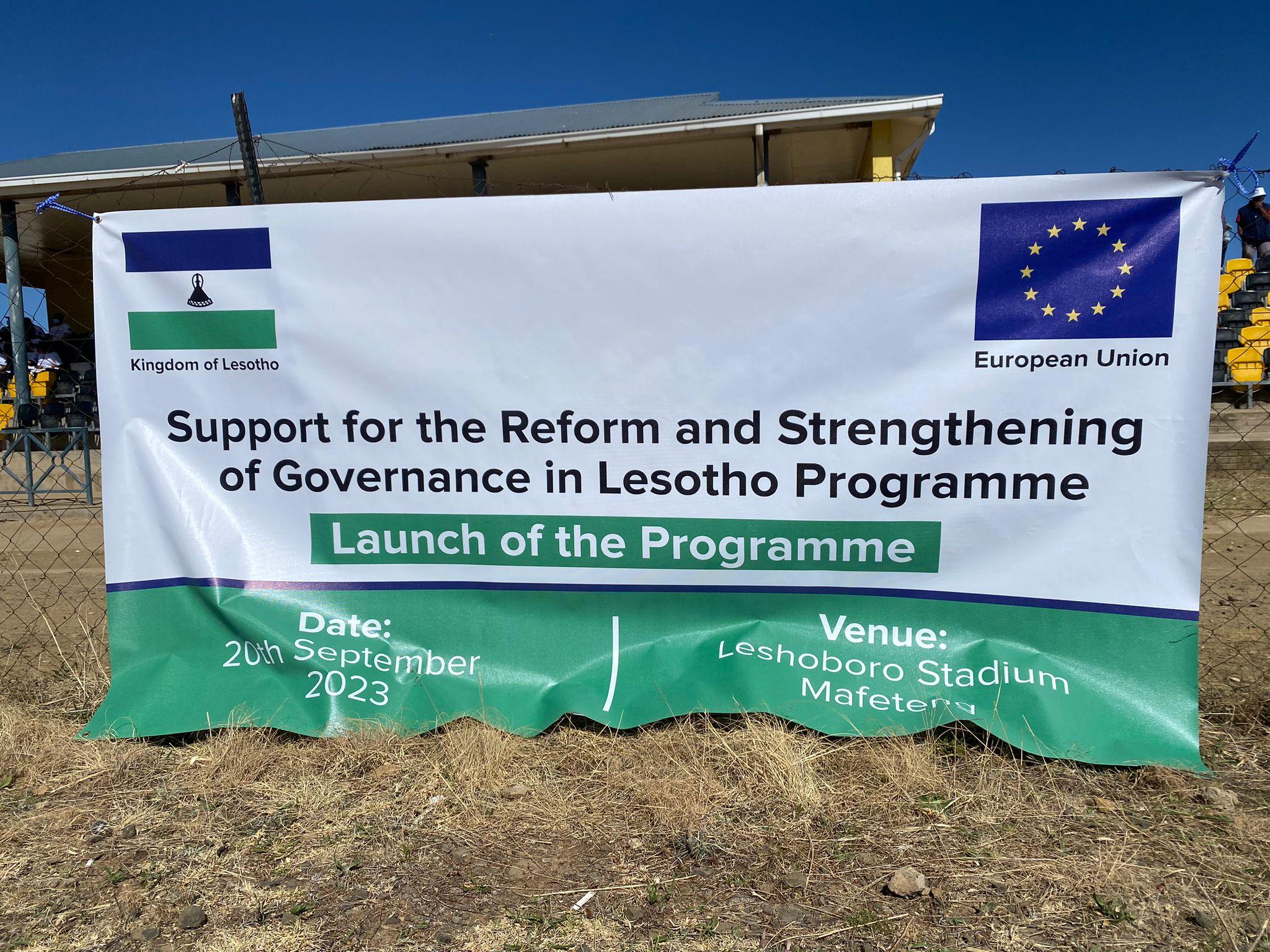Ntsoaki Motaung
Lesotho Correctional Service (LCS) and Skills Share Lesotho have embarked on a programme to address the barriers that prevent previously incarcerated individuals from successfully reintegrating into their communities.
The programme, called community reintegration, is funded by the United Nations (UN) through the United Nations Development Programme (UNDP) – a UN agency tasked with helping countries eliminate poverty and achieve sustainable economic growth and human development.
During a press conference this week, Skills Share program manager, Rapelang Mosae, indicated that in its quest to be known in the communities, LCS welcomed logistical support to pilot the community reintegration programme.
The programme is aimed to build connections between offenders and the victims of their crimes.
“Through the project, we take inmates to their communities where they ask for forgiveness and explain how the correctional service is helping them,†Mosae said.
He disclosed that this came after the realisation that after inmates have served their terms and are ready to be released, the community seems to be not ready to welcome or accommodate them back.
“We are looking to having inmates who are welcomed by their communities and become important members of those communities again,†he said.
Several individuals are released from correctional institutions across the country annually but some of them are rearrested within a short period of their release because they are disadvantaged socially.
Some are burdened with a criminal record, no matter how minor the offence and face significant challenges reintegrating into communities.
Mosae indicated that the reintegration programme has already been implemented in Teyateyaneng, Botha Bothe, and Mohale’s Hoek.
“The feedback from where we have reached already is that the communities have said that they see a change in the inmates and are ready to welcome them back into the community.
“The communities further recommended that after inmates are released, they should be provided assistance to help them start small businesses and avoid committing crimes again,†he explained.
The deputy commissioner of LCS, Motingoe Phamotse, said LCS as an institution that forms part of the national security sector, was ready to participate in the ongoing national reforms process.
Phamotse said their journey their mission to familiarise the nation with the work of LCS started following the publication of the National Dialog Plenary II Report which revealed the people’s perceptions about the institution.
“We felt it essential to interact with Basotho so that they can know more about us. They should know our line of work and how we do the work guided by the law and policies,†he said.
He indicated a specialist from the justice and corrections department of the UN was brought into the country to study the state of the correctional services in the country.
Phamotse said the specialist made several recommendations which included having the national corrections policy and strategy and standard operating procedures.
“It was revealed after the study that LCS is ranked very low by Basotho in terms of how it does its work,†he said.
He indicated that inmates were part of society and were expected to go back to the same society after they have served their term except for those that had been given life sentences.

Your Trusted Source for News and Insights in Lesotho!
At Newsday Media, we are passionate about delivering accurate, timely, and engaging news and multimedia content to our diverse audience. Founded with the vision of revolutionizing the media landscape in Lesotho, we have grown into a leading hybrid media company that blends traditional journalism with innovative digital platforms.












